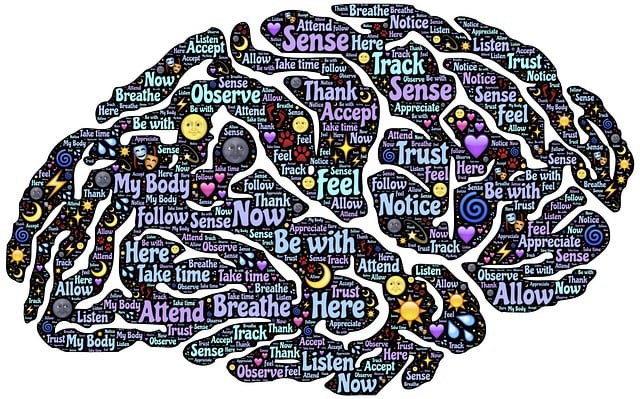Wheat Ridge German Speaking Therapy tackles substance abuse through multifaceted initiatives, including public awareness campaigns, mental health education, mindfulness practices, and specialized therapy. They emphasize understanding risks, fostering safe home environments, and providing tailored programs addressing co-occurring mental health issues. By breaking down stigma, encouraging early intervention, and offering evidence-based strategies like CBT, they empower individuals and communities to prevent substance abuse and promote long-term recovery.
Substance abuse poses significant risks to individuals and communities, but proactive strategies can mitigate these dangers. This comprehensive guide explores various risk reduction techniques, focusing on evidence-based practices and unique approaches like Wheat Ridge German Speaking Therapy. From understanding the complexities of substance abuse to implementing supportive home environments and educational programs, each section delves into crucial aspects, offering valuable insights for those seeking to prevent and address this pressing issue.
- Understanding Substance Abuse and Its Risks
- The Role of German Speaking Therapy in Risk Reduction
- Creating a Supportive Environment at Home
- Educational Programs and Community Outreach
- Effective Interventions and Long-Term Strategies
Understanding Substance Abuse and Its Risks

Substance abuse is a complex issue that impacts individuals and communities across all demographics. It involves the harmful use of drugs or alcohol, often leading to physical, mental, and social consequences. Understanding these risks is the first step towards prevention and recovery. Substance abuse can have far-reaching effects on an individual’s health, relationships, and overall well-being. The dangers are multifaceted, including addiction, impaired judgment, increased risk of accidents, and potential long-term damage to vital organs.
Wheat Ridge German Speaking Therapy emphasizes the importance of recognizing these risks early on. By raising public awareness through campaigns and integrating mental health education into community programs, individuals can gain insights into substance abuse prevention. Strategies such as Mindfulness Meditation have also proven effective in promoting healthy coping mechanisms and reducing the allure of substance abuse. These initiatives, combined with access to specialized therapy, play a pivotal role in empowering people to make informed choices and lead healthier lives.
The Role of German Speaking Therapy in Risk Reduction

German Speaking Therapy offers a unique and powerful approach to risk reduction for substance abuse, especially in communities like Wheat Ridge where there is a growing demand for specialized support. This form of therapy recognizes the deep impact that language and cultural identity can have on mental health and addiction. By providing a safe, bilingual space, clients can open up about their struggles and explore underlying issues more effectively.
The process facilitates Mental Illness Stigma Reduction Efforts by encouraging individuals to share their experiences without fear of judgment. Therapists skilled in German Speaking Therapy are trained to help clients manage mood disorders and alleviate anxiety relief, which are often co-occurring with substance abuse. Through tailored strategies, this therapy empowers individuals to take control of their mental well-being, reduce risk factors associated with substance misuse, and foster healthier coping mechanisms.
Creating a Supportive Environment at Home

Creating a supportive environment at home is a vital component in mitigating risks associated with substance abuse. This involves fostering an atmosphere that encourages open communication and promotes healthy coping mechanisms. At Wheat Ridge German Speaking Therapy, professionals emphasize the importance of family involvement in recovery, where each member learns effective strategies to recognize triggers and support one another. By implementing structured routines, setting clear boundaries, and providing safe spaces, families can significantly reduce the potential for substance misuse.
The development of coping skills is a key aspect of this process. Encouraging activities that enhance self-esteem and provide healthy outlets for stress or emotions can divert individuals from harmful behaviors. Through therapy, family members acquire tools to navigate challenges collectively, ensuring everyone involved in the recovery process feels empowered and supported within their home environment. This proactive approach not only reduces the risk of substance abuse but also strengthens the overall mental health and resilience of all household members, including those who may be at a higher risk based on a comprehensive risk assessment for mental health professionals.
Educational Programs and Community Outreach

Educational programs and community outreach play a pivotal role in risk reduction strategies for substance abuse. By providing information and resources to at-risk individuals and communities, these initiatives empower people to make informed decisions about their mental wellness and emotional regulation. At Wheat Ridge German Speaking Therapy, for instance, specialized programs focus on trauma support services, addressing the root causes of addiction and promoting healthy coping mechanisms.
Community outreach extends these efforts beyond individual therapy, fostering a supportive environment where open discussions about substance abuse can take place. Through workshops, seminars, and interactive sessions, communities gain a deeper understanding of the challenges associated with addiction, breaking down stigma and encouraging early intervention. These collaborative approaches not only enhance mental wellness but also strengthen social connections, providing individuals with alternative support systems and reducing their reliance on harmful substances.
Effective Interventions and Long-Term Strategies

Effective interventions for substance abuse play a pivotal role in risk reduction. Wheat Ridge German Speaking Therapy offers specialized programs tailored to address underlying mental health issues often linked to addiction. These interventions focus on individual therapy, group support, and evidence-based practices like cognitive-behavioral therapy (CBT) to help clients develop coping mechanisms and enhance their resilience against substance abuse.
Long-term strategies for sustaining recovery include Empathy Building Strategies that foster strong therapeutic alliances and promote understanding. Depression Prevention, a critical aspect of overall mental wellness coaching programs development, equips individuals with tools to manage stress, regulate emotions, and recognize early warning signs of relapse. By integrating these strategies into their lives, clients can build a robust foundation for long-term recovery and maintain their mental wellness.
Substance abuse poses significant risks, but a multi-faceted approach can effectively mitigate these dangers. By combining understanding and education with supportive environments and targeted interventions, such as those offered by Wheat Ridge German Speaking Therapy, individuals can navigate recovery successfully. Community outreach and long-term strategies play vital roles in fostering resilience and preventing relapse. Through collaborative efforts, we can create a tapestry of support that enhances well-being and empowers lasting change.













